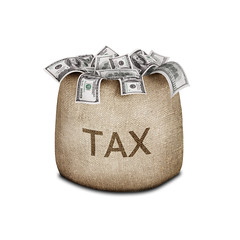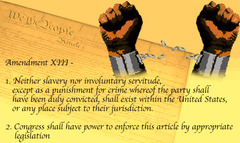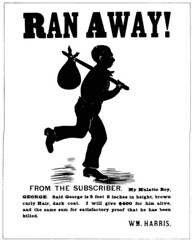| 3753613203 | Colony | Land controlled by a distant nation. |  | 0 |
| 3753613204 | Mercantilism | British colonies were moneymakers for the mother country. |  | 1 |
| 3753614688 | Salutary Neglect | Relax the enforcement of strict regulations. |  | 2 |
| 3753614689 | Mayflower Compact | Used to govern Plymouth colony. Example of democracy. |  | 3 |
| 3753616912 | Virginia House of Burgesses | 1st representative governing body in colonial America. |  | 4 |
| 3753621355 | Proclamation of 1763 | Forbade all settlement past a line drawn along the Appalachian Mountains. |  | 5 |
| 3753621356 | Sugar Act | Tax on sugar and molasses imported into the colonies. |  | 6 |
| 3753621357 | Stamp Act | Imposing a stamp duty/tax on newspapers and legal and commercial documents. |  | 7 |
| 3753623578 | Townshend Act | Taxes on tea and other goods to raise revenue in the colonies. |  | 8 |
| 3753627525 | Intolerable Acts | Passed by the British Parliament after the Boston Tea party. Meant to punish the colonists for throwing a large tea shipment into Boston harbor. |  | 9 |
| 3753627540 | Common Sense | Authored by Thomas Paine in support of the movement for independence. |  | 10 |
| 3753629981 | Declaration of Independence | Written by Thomas Jefferson declaring the freedom of the thirteen American colonies from Great Britain. Adopted July 4th, 1776. |  | 11 |
| 3753629982 | Loyalists | American colonists who remained loyal to the British Crown during the American Revolutionary War. |  | 12 |
| 3753632783 | Articles of Confederation | Document that established the government of the United States after it declared independence from Great Britain. |  | 13 |
| 3753763917 | Great Compromise | Bicameral plan for representation, to please both large and small states. |  | 14 |
| 3753763918 | 3/5 Compromise | "Free persons" would count as one and "non-free persons" would count as three-fifths of a person. |  | 15 |
| 3753763919 | Congress | The legislative branch of the United States federal government, composed of the House of Representatives and the Senate. |  | 16 |
| 3753765292 | Senate | The upper house of the United States Congress. Two senators are elected from each state, regardless of state population, guaranteeing each state equal representation. Senators are elected for six-year terms. |  | 17 |
| 3753766442 | House of Representatives | The lower house of the United States Congress, with 435 popularly elected officials. (Based on population) |  | 18 |
| 3753766443 | Federalism | The division of power between federal and state level governments. |  | 19 |
| 3753768068 | Separation of Powers | Three separate branches: executive, judicial, and legislative. No one branch can gain absolute power. |  | 20 |
| 3753769347 | Checks and Balances | System that prevents any branch of the government from dominating the other two. |  | 21 |
| 3753769348 | Electoral College | Body of electors chosen by the voters in each state to elect the president and vice president of the U.S. |  | 22 |
| 3753770476 | Federalist | Supporters of a strong national government and the Constitution. |  | 23 |
| 3753770477 | Anti-Federalist | One who opposed the ratification of the Constitution in 1789, opposed strong centralized government. |  | 24 |
| 3753772747 | Bill of Rights | The first 10 amendments to the US Constitution, including citizen's rights and freedoms. |  | 25 |
| 3753773966 | Marbury v. Madison (1803) | Supreme Court - Chief Justice John Marshall: The Court declared that a certain law passed by Congress should not be enforced, establishing the principle of "judicial review" that the Supreme Court has the power to declare acts of Congress unconstitutional. | 26 | |
| 3753773967 | Unwritten Constitution | Political practices that are followed, but are not part of the actual Constitution. Examples include political parties, and the Presidential Cabinet. |  | 27 |
| 3753775738 | Cabinet | A group of advisers to the president. |  | 28 |
| 3753777577 | Pinckney Treaty | 1795 - Treaty between the U.S. and Spain which gave the U.S. the right to transport goods on the Mississippi river and to store goods in the Spanish port of New Orleans |  | 29 |
| 3754041730 | Jay Treaty | John Jay - It said that Britain was to pay for Americans ships that were seized in 1793. It said that Americans had to pay British merchants debts owed from before the revolution and Britain had agreed to remove their troops from the Ohio Valley. |  | 30 |
| 3754073894 | Alien and Sedition Acts | Laws passed by congress in 1798 that enabled the government to imprison or deport aliens and to prosecute critics of the government |  | 31 |
| 3754079240 | Nullification | A state's refusal to recognize an act of Congress that it considers unconstitutional |  | 32 |
| 3754083047 | Sectionalism | A devotion to the interests of one geographic region over the interests of the country as a whole. |  | 33 |
| 3754085411 | Louisiana Purchase | 1803 purchase of the Louisiana territory from France. Made by Jefferson, this doubled the size of the US. |  | 34 |
| 3754088055 | War Hawks | Southerners and Westerners who were eager for war with Britain. They had a strong sense of nationalism, and they wanted to takeover British land in North America and expand. |  | 35 |
| 3754094030 | The American System | The three-part plan developed by Henry Clay that stressed a strong banking system, protective tariffs, and a network of roads and canals. |  | 36 |
| 3754109655 | McCulloch v. Maryland | Chief Justice John Marshall continued to strengthen federal power through rulings like this which said that the states could not tax the national bank, which established national law over state law. |  | 37 |
| 3754119223 | Missouri Compromise | "Compromise of 1820" over the issue of slavery in Missouri. It was decided Missouri entered as a slave state and Maine entered as a free state and all states North of the 36th parallel were free states and all South were slave states. |  | 38 |
| 3754126008 | Monroe Doctrine | A statement of foreign policy which proclaimed that Europe should not interfere in affairs within the United States or in the development of other countries in the Western Hemisphere. |  | 39 |
| 3754128746 | Suffrage | The right to vote |  | 40 |
| 3754130405 | Spoils System | Andrew Jackson - system of public employment based on rewarding party loyalists and friends. |  | 41 |
| 3754136284 | Worcester v. Georgia | Supreme Court Decision - Cherokee Indians won their case, they could stay in Georgia. Jackson ignored the ruling. Many die on the Trail of Tears. |  | 42 |
| 3754147006 | Abolitionist | A person who wanted to end slavery |  | 43 |
| 3754152714 | Emancipation Proclamation | Issued by Lincoln on Sept. 22, 1862; declared that all slaves in the rebellious Confederate states would be free; not applied to border states; gov. actively enlists blacks into Union military; abolition of slavery was a Union war goal |  | 44 |
| 3754160463 | Habeus Corpus | The right of an accused person to be brought before a judge and informed of the charges and evidence against him or her |  | 45 |
| 3754175833 | Popular Sovereignty | Notion that the people of a territory should determine if they want to be a slave state or a free state. |  | 46 |
| 3754180768 | 13th Amendment | Abolished Slavery |  | 47 |
| 3754182486 | 14th Amendment | Declares that all persons born in the U.S. are citizens and are guaranteed equal protection of the laws |  | 48 |
| 3754188149 | 15th Amendment | Citizens cannot be denied the right to vote because of race, color , or previous condition of servitude |  | 49 |
| 3754195597 | Black Codes | Laws denying most legal rights to newly freed slaves; passed by southern states following the Civil War |  | 50 |
| 3754197935 | Plessy v. Ferguson | a 1896 Supreme Court decision which legalized state ordered segregation so long as the facilities for blacks and whites were equal |  | 51 |
| 3754206973 | Share Cropping | Unfair economic system replaced plantation slavery after civil war |  | 52 |
| 3754210956 | Monopoly | A company that controls all production and sales of a particular product or service |  | 53 |
| 3754213394 | Trust | A group of corporations run by a single board of directors |  | 54 |
| 3754217064 | Vertical Integration | The process of gaining control of all the steps used to change raw materials into finished products. |  | 55 |
| 3754226211 | Horizontal Integration | Occurs when one company gains control over other companies that produce the same product. |  | 56 |
| 3790179131 | Philanthropy | charity; a desire or effort to promote goodness |  | 57 |
| 3790181809 | Social Darwinism | Charles Darwin's ideas applied to humans, "survival of the fittest." Used by wealthy to justify their position in life |  | 58 |
| 3790187159 | Progressives | A group of reformers who worked to solve problems caused by the rapid industrial urban growth of the late 1800s. |  | 59 |
| 3790191736 | Muckrakers | Journalists who searched for corruption in politics and big business |  | 60 |
| 3790193247 | Initiative | A procedure by which voters can propose a law or a constitutional amendment. |  | 61 |
| 3790195450 | Referendum | A state-level method of direct legislation that gives voters a chance to approve or disapprove proposed legislation. |  | 62 |
| 3790199313 | Recall | Procedure for submitting to popular vote the removal of officials from office before the end of their term. |  | 63 |
| 3792564959 | Emancipate | To set free |  | 64 |
| 3792568424 | Manifest Destiny | 1800s belief that Americans had the right to spread across the continent. |  | 65 |
| 3792574539 | Compromise of 1850 | CA admitted as a free state, increased fugitive slave laws, slave trade banned in Washington DC; popular sovereignty in most other states from Mexican- American War |  | 66 |
| 3792583460 | Fugitive Slave Act | (1850) a law that made it a crime to help runaway slaves; allowed for the arrest of escaped slaves in areas where slavery was illegal and required their return to slaveholders |  | 67 |
| 3792590549 | Dred Scott v Sandford | 1857 Supreme Court decision that stated that slaves were not citizens; that living in a free state or territory, even for many years, did not free slaves; and declared the Missouri Compromise unconstitional |  | 68 |
| 3800033119 | 16th Amendment | Federal income tax |  | 69 |
| 3800033120 | 17th Amendment | Direct Election of Senators |  | 70 |
| 3800034356 | 18th Amendment | Prohibition |  | 71 |
| 3800035980 | 19th Amendment | Gave women the right to vote |  | 72 |
| 3800084450 | Square Deal | Roosevelt's plan that aimed to regulate corporations , protect consumers and conserve natural resources. |  | 73 |
| 3800099733 | New Freedom | Democrat Woodrow Wilson's political slogan in the presidential campaign of 1912; Wilson wanted to improve the banking system, lower tariffs, and, by breaking up monopolies, give small businesses freedom to compete. |  | 74 |
| 3947548659 | Imperialism | A policy in which a strong nation seeks to dominate other countries politically, socially, and economically. |  | 75 |
| 3947549929 | Yellow Journalism | Journalism that exploits, distorts, or exaggerates the news to create sensations and attract readers |  | 76 |
| 3947553032 | Roosevelt Corallary | Added to the Monroe Doctrine. It declared that the United States would become the police in the Western Hemisphere to keep European from intervening. "Walk softly and carry a big stick" |  | 77 |
| 4000487562 | Selective Service Act | Law passed by Congress in 1917 that required all men from ages 21 to 30 to register for the military draft |  | 78 |
| 4000488569 | Espionage Act | 1917 law that set heavy fines and long prison terms for antiwar activities |  | 79 |
| 4000490278 | Sedition Act | 1918 law that made it illegal to criticize the government |  | 80 |
| 4000493773 | Schenck v. US | A United States Supreme Court decision concerning the question of whether the defendant possessed a First Amendment right to free speech against the draft during World War I. Ultimately, the case served as the founding of the "clear and present danger" rule. |  | 81 |
| 4000495409 | Great Migration | Mass movement of African Americans from the South to the North during WWI for economic opportunities |  | 82 |
| 4000499250 | League of Nations | An international organization formed in 1920 to promote cooperation and peace among nations; suggested in Wilson's Fourteen Points. |  | 83 |
| 4000500139 | Treaty of Versailles | 1919 treaty that officially ended World War I; the immense penalties it placed on Germany are regarded as one of the causes of World War II |  | 84 |
| 4335386572 | Red Scare | A social/political movement designed to prevent a socialist/communist/radical movement in this country by finding "radicals," incarcerating them, deporting them, and subverting their activities |  | 85 |
| 4335392144 | 21st Amendment | Amendment which ended the Prohibition of alcohol in the US, repealing the 18th amendment |  | 86 |
| 4335394377 | Harlem Renaissance | A period in the 1920s when African-American achievements in art, music and literature flourished |  | 87 |
| 4335403093 | Scopes Monkey Trail | Known as The State of Tennessee v. John Thomas Scopes, was a legal case in 1925 over a high school teacher who was accused of teaching evolution which violated Tennessee's Butler Act. Scopes lost, but the case was overturned on a technicality. |  | 88 |
| 4335412357 | Hawely Smoot Tariff Act | 1930- Raised U.S. tariffs on over 20,000 imported goods to record levels. |  | 89 |
| 4335432798 | Black Tuesday | October 29, 1929; date of the worst stock-market crash in American history and beginning of the Great Depression. |  | 90 |
| 4335434946 | The New Deal | 1933-1937 Government sponsored programs implemented by President Franklin D. Roosevelt to revitalize the economy and alleviate poverty and despair caused by the Depression. |  | 91 |
| 4335437587 | Good Neighbor Policy | FDR's foreign policy of promoting better relations w/Latin America by using economic influence rater than military force in the region |  | 92 |
| 4335440029 | Neutrality Acts | Originally designed to avoid American involvement in World War II by preventing loans to those countries taking part in the conflict; they were later modified in 1939 to allow aid to Great Britain and other Allied nations. |  | 93 |
| 4335444220 | Lend Lease Act | Allowed sales or loans of war materials to any country whose defense the president deems vital to the defense of the U.S |  | 94 |
| 4335448204 | Korematsu v US | 1944 Supreme Court case in which the Supreme Court upheld the order providing for the relocation of Japanese Americans. It was not until 1988 that Congress formally apologized and agreed to pay $20,000 to each survivor |  | 95 |
| 4335451514 | 22nd Amendment | Amendment that created a 2 term limit on presidents. |  | 96 |
| 4335453888 | GI Bill | law passed in 1944 to help returning veterans buy homes and pay for higher educations |  | 97 |
| 4344626843 | Containment | American policy of resisting further expansion of communism around the world |  | 98 |
| 4344628536 | Truman Doctrine | 1947, President Truman's policy of providing economic and military aid to any country threatened by communism or totalitarian ideology, mainly helped Greece and Turkey |  | 99 |
| 4344638560 | Marshall Plan | A United States program of economic aid for the reconstruction of Europe (1948-1952) |  | 100 |
| 4344644651 | Fair Deal | An economic extension of the New Deal proposed by Harry Truman that called for higher minimum wage, housing and full employment. It led only to the Housing Act of 1949 and the Social Security Act of 1950 due to opposition in congress. |  | 101 |
| 4451137024 | New Frontier | President Kennedy's plan aimed at improving the economy, fighting racial discrimination, and exploring space |  | 102 |
| 4451139270 | Great Society | President Johnson called his version of the Democratic reform program the Great Society. In 1965, Congress passed many Great Society measures, including Medicare, civil rights legislation, and federal aid to education. |  | 103 |
| 4451146524 | Affirmative Action | A policy designed to redress past discrimination against women and minority groups through measures to improve their economic and educational opportunities |  | 104 |
US History Key Terms Flashcards
Primary tabs
Need Help?
We hope your visit has been a productive one. If you're having any problems, or would like to give some feedback, we'd love to hear from you.
For general help, questions, and suggestions, try our dedicated support forums.
If you need to contact the Course-Notes.Org web experience team, please use our contact form.
Need Notes?
While we strive to provide the most comprehensive notes for as many high school textbooks as possible, there are certainly going to be some that we miss. Drop us a note and let us know which textbooks you need. Be sure to include which edition of the textbook you are using! If we see enough demand, we'll do whatever we can to get those notes up on the site for you!

